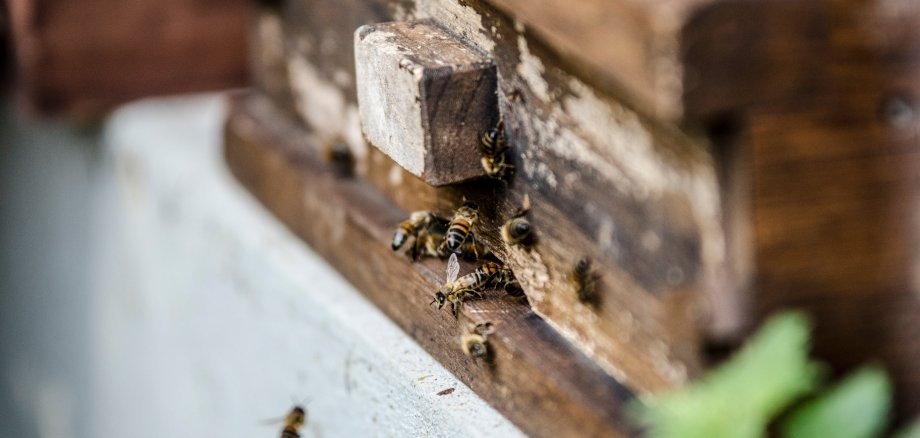Protection against animal diseases: Register bee colonies!
Beekeeping is very much in vogue: the number of beekeepers in Hesse has been rising steadily for about ten years. To protect the animals from possible diseases, keepers in Waldeck-Frankenberg are obliged to register their bee colonies with the district.
Many beekeepers are not only interested in the honey of bees, but also want to make a contribution to nature conservation. After all, honey bees make a decisive contribution to the preservation of biodiversity through their pollination activities and pollinate about 80 percent of all plant species that depend on them for reproduction.
But bee colonies are by no means as easy to care for as they seem at first glance, because there are a few things to consider when keeping them. It is important to know that beekeeping is a responsible and time-consuming leisure activity. Experts assume a time requirement of at least twelve hours per colony per year, whereby new beekeepers should plan significantly more time. Especially at the beginning, it is always a good idea to seek advice and help. For example, local beekeepers' associations offer taster courses or provide mentors for young beekeepers. Under no circumstances should you simply buy colonies on the internet without first obtaining detailed information.
Many hobby beekeepers in Waldeck-Frankenberg are also not aware that bee colonies must be registered with the district's Food Monitoring, Animal Welfare and Veterinary Service at the latest when they start keeping bees. Likewise, changes of location must be reported. These regulations are intended to ensure that, in the event of the occurrence of malignant foulbrood, a restricted area for bees can be formed in which all apiaries can then be tested for this disease. Foulbrood is a contagious, bacterial disease of bee brood that leads to the death of colonies. If it is not recognised and combated quickly enough, it can be passed on to the surrounding bee colonies.
In order to be able to react early and, above all, comprehensively to an outbreak of foulbrood, the district once again reminds all beekeepers to report the number and locations of their bee colonies. In addition to the notification to the veterinary office, a notification of beekeeping must also be made to the Hessische Tierseuchenkasse (members of beekeepers' associations are insured through this).
